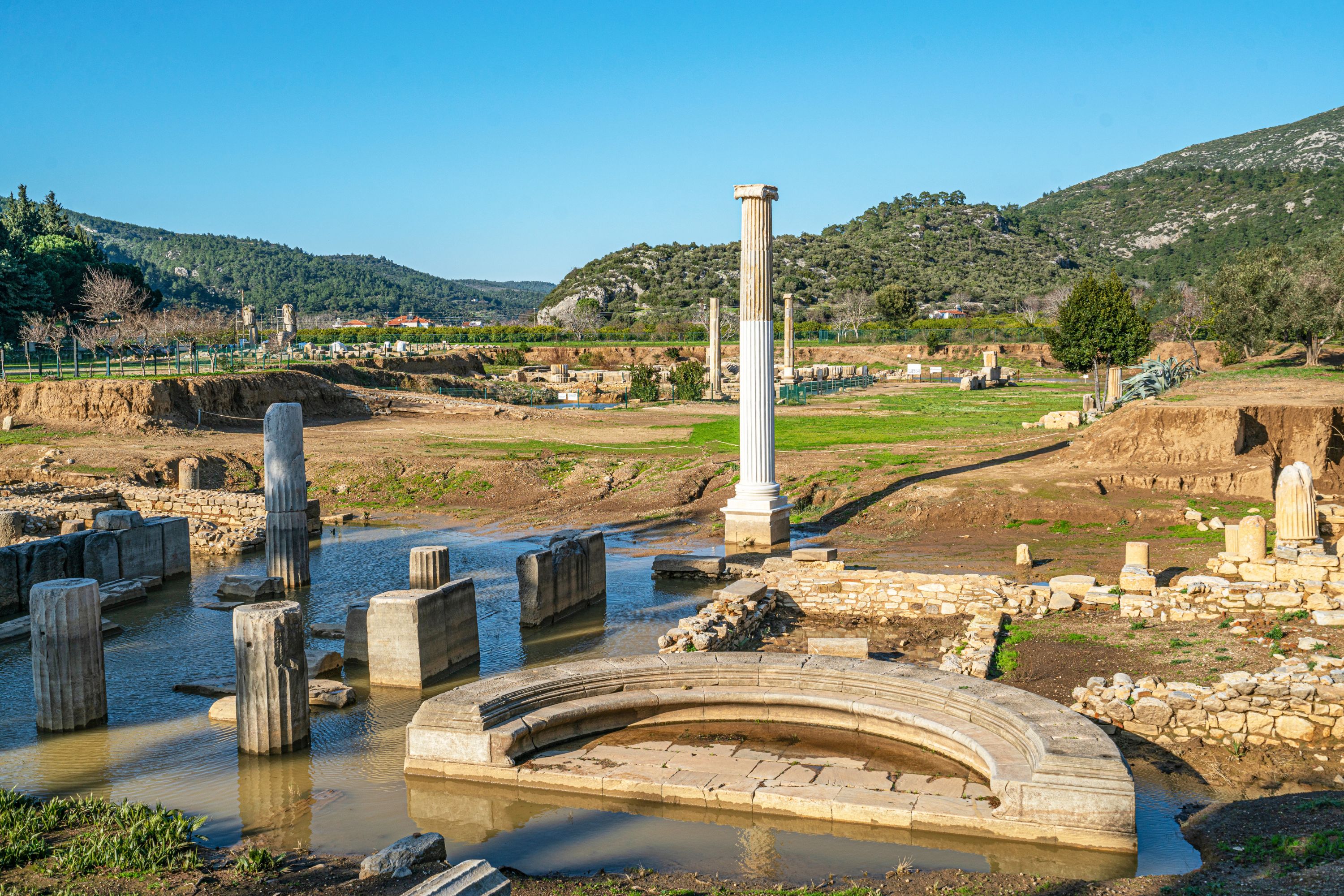A Collection Of Gold Coins Thought To Be Over 2,000-Years-Old And Used In The Ancient Persian Empire Were Discovered In Notion, An Ancient Greek City

In an ancient Greek city, a collection of gold coins believed to be more than 2,000 years old were uncovered.
During excavations at the archaeological site of Notion, the coins were found in a small pot. The site is located in a Hellenistic city-state on the west coast of Anatolia in what is now known as Turkey.
The coins likely date back to the 5th century B.C. According to Christopher Ratté, an archaeologist with the University of Michigan and the director of the Notion Archaeological Project, there was a “very significant” amount of coins. An exact number was not given.
Images of a kneeling archer were sculpted on the coins, indicating that they were darics, a type of currency used in the ancient Persian Empire. The Persians conquered Notion, along with other Greek settlements, in the mid-6th century B.C.
During the Greco-Persian Wars of the early 5th century B.C., the city was freed. But in the early 4th century B.C., it was reincorporated into the Persian Empire. Finally, in the latter half of the 4th century B.C., Alexander the Great conquered the Persian Empire.
Darics were minted starting in the late 6th century B.C. until the time of Alexander’s conquest. Over this period, the design of the coins remained largely unchanged except for a few slight differences. The daric was mainly used to pay mercenary soldiers, according to historical records.
It is unclear how the hoard of coins ended up in Notion, but they may have been associated with some kind of military activity in the region involving mercenaries.
“The Greek historian Xenophon tells us that darics were used to pay mercenaries, and this was a common function of early coinage in general,” said Ratté. “One coin was a mercenary soldier’s salary for a month, so these coins were far too valuable for use in daily commercial transactions. But they were very well suited for payment for soldiers who were constantly on the move.”
As a result, the daric was so highly valued throughout the Mediterranean region that individuals who weren’t soldiers kept them as assets. The gold coin collection from Notion was found in a pot in the corner of a room within a structure buried underneath a Hellenistic house.
Selcuk – stock.adobe.com – illustrative purposes only
Sign up for Chip Chick’s newsletter and get stories like this delivered to your inbox.
It is thought that the coins were stored there for safekeeping but were never recovered for some reason.
Most darics that have been unearthed were done so by looters, which means that experts don’t have a lot of historical context surrounding darics.
This time was different, though. Since archaeologists were the ones who stumbled upon the stash, they were able to glean a wealth of information from the coins.
“We know exactly where they were found. We know what kind of building they were found in. We know from associated pottery and other artifacts when they were deposited. This information enables us to connect the coin hoard with historical events, such as the effect of the Peloponnesian War on the inhabitants of Ionian cities like Notion,” Ratté said.
The Peloponnesian War lasted from 431 to 404 B.C. It was fought between Athens and Sparta and their corresponding allies. Notion served as an important military port for Athens during the war.
Welcome to Billionaire Club Co LLC, your gateway to a brand-new social media experience! Sign up today and dive into over 10,000 fresh daily articles and videos curated just for your enjoyment. Enjoy the ad free experience, unlimited content interactions, and get that coveted blue check verification—all for just $1 a month!
Account Frozen
Your account is frozen. You can still view content but cannot interact with it.
Please go to your settings to update your account status.
Open Profile Settings